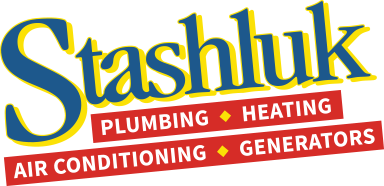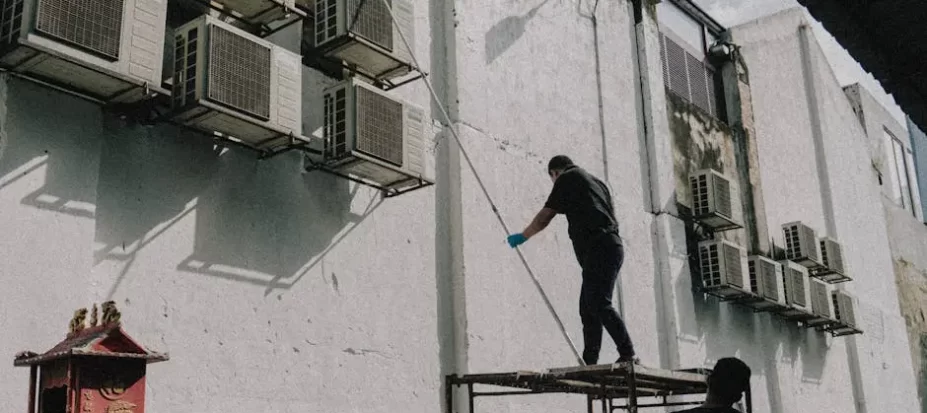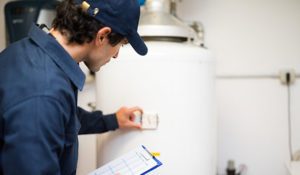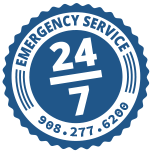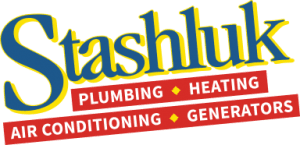In the world of business operations, reducing overheads while maintaining efficiency is crucial. For businesses relying on commercial HVAC systems, regular maintenance is not only a necessity but a strategic financial move. This blog explores how maintaining your commercial HVAC system can be a cost-effective choice.
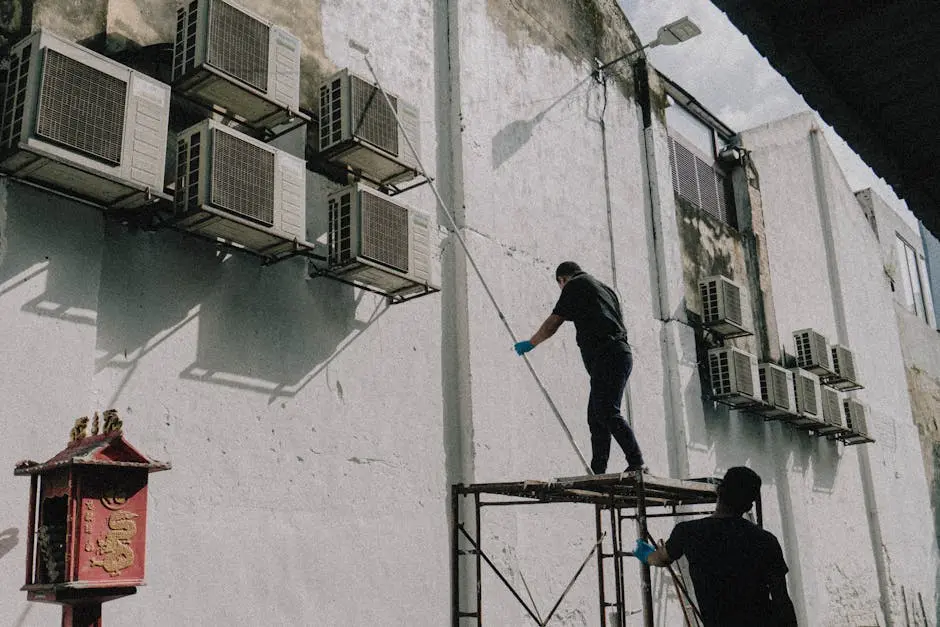
Understanding the Importance of HVAC Maintenance
Regular HVAC maintenance is crucial to ensure the system runs efficiently, which leads to energy cost savings. Properly maintained systems use less energy to produce the same amount of heating or cooling, translating into reduced utility bills. Systems that don’t receive routine check-ups are prone to inefficiencies and higher energy consumption. Regularly scheduled maintenance keeps components like fans, coils, and filters in good working order, all of which contribute to efficient operation. This process also involves replacing or cleaning air filters, a simple act that can instantly optimize the performance of any HVAC system. In fact, changing filters alone can improve energy efficiency by up to 15%.source
Moreover, when systems operate efficiently, not only do businesses save money, they also gain control over their environmental impact by reducing their carbon footprint. A well-maintained HVAC system consumes less energy, which translates into fewer greenhouse gas emissions, proving that financial and environmental benefits go hand in hand. A simple maintenance act like adjusting or calibrating thermostats might seem minor, but it can impact overall energy consumption significantly, ensuring your system isn’t working harder than needed.
Navigating the balance between comfort and responsible resource use is crucial for modern businesses. Understanding HVAC systems’ importance involves recognizing their dual role in maintaining indoor air quality and temperature control. These systems act as the lungs of the building, consistently moving fresh air in while filtering pollutants out, ensuring a healthy and comfortable environment for all occupants. Maintaining air quality is a critical factor that speaks directly to employee wellness, highlighting how maintenance intersects with productivity and employee morale.Read more
Preventive Maintenance: Stopping Problems Before They Occur
Preventive maintenance helps identify potential issues before they become major problems. This proactive approach reduces the likelihood of unexpected breakdowns, lowering the risk of costly emergency repairs and downtime. During routine inspections, technicians can spot worn parts that might not yet be causing issues but could fail soon if left unattended. Early detection allows for minor fixes instead of major overhauls.
Regular maintenance visits provide opportunities to carry out small repairs or adjustments that can prevent more massive issues later on. For instance, a frayed belt may seem insignificant at first, but if it breaks during operation, the repair bill could escalate since it might damage other components of the unit. Investing in timely repairs and services ensures that systems operate at their optimal capacity, thus protecting the business from unanticipated costly shutdowns.
Following a consistent maintenance schedule allows businesses to plan their budgets better, avoiding unexpected spending spikes due to urgent repair needs. Preventive maintenance often involves simple procedures like tightening electrical connections or inspecting refrigerant levels, which might seem minor but are crucial for preventing larger malfunctions. This kind of upkeep helps extend the equipment’s lifespan, ensuring that the initial investment in the system brings returns over a longer period.
Long-Term Benefits of Regular Commercial HVAC Check-Ups
Routine check-ups can extend the lifespan of an HVAC system. By keeping systems running smoothly, businesses can delay the expensive cost of replacing equipment, ensuring better return on investment over time. An HVAC system is often one of the larger investments in a commercial building, and like any significant investment, it requires care and attention to maintain its value. Regular check-ups help ensure things like airflow remain unobstructed, and all parts are functioning properly, lowering the probability of frequent replacements.
The reality of HVAC maintenance becomes quite apparent when weighing new system costs against maintenance expenses. Often, minor maintenance tasks—like lubrication of moving parts or timely replacement of worn components—enable businesses to avoid the substantial financial impact of a complete system replacement. Moreover, a well-maintained system boosts operational efficiency, reducing the workload on individual components and minimizing stress on the entire system.
Energy Efficiency and Reduced Operating Costs
Well-maintained HVAC systems operate more efficiently, consuming less power. This not only saves money but is also better for the environment. Smarter energy use translates to lower monthly operating costs and a smaller carbon footprint. The financial savings realized from reduced utility costs can be significant, particularly for businesses operating large or multiple systems.
In an era where energy efficiency has become synonymous with cost-saving, ensuring that your system is always operating at maximum efficiency is key. A regular maintenance schedule means fewer interruptions in service and a consistent, reliable indoor climate. Furthermore, understanding and utilizing system settings effectively can further reduce energy waste, such as avoiding unnecessary heating or cooling when a space is unoccupied.
By aligning HVAC use with peak operational hours and enhancing system tweaks tailored for your specific needs, cost efficiency can go hand in hand with optimal employee comfort, leading to an overall better workspace environment. Simple measures, such as installing programmable thermostats to better control temperatures or adjusting dual temperature zones based on occupancy, can have immediate and lasting effects on energy consumption.
Selecting the Right Maintenance Plan for Your Business
Choosing a tailored maintenance plan suitable for your business’s HVAC needs can ensure optimal performance. Businesses should consult with HVAC professionals to select plans that provide appropriate levels of inspection and service. Tailoring a plan to fit your business’s specific usage pattern is critical; a question of both efficiency and practical budgeting.
When selecting an HVAC maintenance plan, factors like the age of the system, type of business operations, and geographic location should be considered. For instance, a restaurant’s system might require more frequent cleanings due to grease and other residues in the air, whereas an office building might focus more on system calibration. It’s additionally important to look for service providers who offer emergency service as part of their package, ensuring rapid response and minimal disruption during unforeseen breakdowns.
For a comprehensive understanding of your company’s needs, conducting an HVAC audit might be beneficial. This helps diagnose existing inefficiencies and gives a clear roadmap to a more efficient future. Engaging with experienced professionals can provide valuable insights into maintaining continuity in operations without unexpected interruptions, directly impacting bottom-line savings. Explore more options here
Prioritize HVAC Maintenance for Long-Term Savings
Regular maintenance of commercial HVAC systems isn’t just about preventing breakdowns—it’s a strategic approach to reducing costs and improving the longevity and efficiency of your equipment. By investing in maintenance, businesses can benefit from lower energy bills, reduced repair costs, and prolonged system life. Don’t wait for a costly failure to occur; act now and make maintenance a priority.
